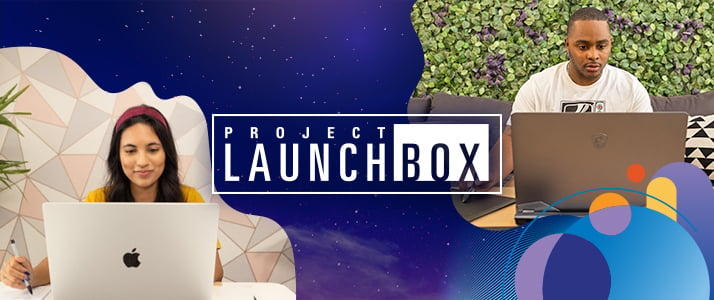Prepare for a future as a technology professional.
Whether you've got the passion to become an innovator or you're just ready to take your skill set as a developer or designer to the next creative level, Full Sail University's web and technology certificate programs can teach you the tools. You'll learn a variety of fundamentals and work on real-world projects to build the skills to start a future in the digital world.
Application Development Fundamentals Undergraduate Certificate — Online
In the Application Development Fundamentals undergraduate certificate program, students will learn the foundations of application development and computer programming while utilizing industry-standard software development processes.
Courses Include:
-
Discrete Mathematics
- Students will explore propositional and symbolic logic, sets and relations, sequences, functions, algorithms, matrices, number theory, combinatorics, probability, and Boolean algebra.
-
Application Development
- Students will explore parameters of collections and data structures and study development techniques that provide for application extendability and scalability while addressing the functional requirements of a given application.
-
Introduction To Development II
- In this course, students will explore how to structure code efficiently and utilize data structures using modern programming techniques.
-
Discrete Mathematics
-
Application Development
-
Introduction To Development II
Computer Science Undergraduate Certificate — Online
The Computer Science undergraduate certificate curriculum equips students with a fundamental understanding of computer science through problem-solving in programming languages. Through the study and application of industry-standard practices and object-oriented programming, students will explore the pillars of computer science, including logic, algorithms, functions, and control flow.
Courses Include:
-
Programming I
- The Programming I course covers fundamental computer science and programming topics such as algorithms, software problem solving, input/output, control flow, functions, object-oriented programming, and references.
-
Systems Programming
- The Systems Programming course explores techniques and methods used in object-oriented programming (OOP) languages through an architecture-focused approach.
-
Project I: Computer Science
- In this course, students will build a software application to solve a real-world problem through applying object-oriented programming concepts.
-
Programming I
-
Systems Programming
-
Project I: Computer Science
Information Technology Undergraduate Certificate — Online
Students will gain familiarity with essential concepts such as Windows and Linux operating systems, networking, server virtualization, and information security practices. Students will also learn how these technology concepts are applied to systems in the workplace through immersive projects designed to enhance students' technical skills and demonstrate their working knowledge of integrated cloud systems.
Courses Include:
-
Computer Operating Systems
- Students will understand how to install and configure various types of operating systems and how to use this knowledge to restrict access to certain users.
-
Virtual Computing
- Students will deploy Linux and Windows operating systems using virtualization software and will apply these technologies throughout future courses as they build more complex systems.
-
Networking Technologies
- Students will learn how to identify local- and wide-area networks and their specific standards as well as how Internet data is delivered.
-
Computer Operating Systems
-
Virtual Computing
-
Networking Technologies
User Experience Undergraduate Certificate — Online
The User Experience undergraduate certificate program will provide you with foundational knowledge of the concepts and tools involved in both visual and user experience design.
Courses Include:
-
Introduction to User Experience
- In this course, students will explore the primary design process and workflow that all UX designers implement.
-
Design and Art Theory
- The Design and Art Theory course provides an understanding of composition, design, art, basic color, and graphics through a study of varied artistic styles and their sociological and psychological effects throughout history.
-
UI Visual Design and Prototyping
- Students will exercise important techniques and skills essential in creating user interface prototypes for a variety of platforms and experiences, such as mobile, web, and gaming.
-
Introduction to User Experience
-
Design and Art Theory
-
UI Visual Design and Prototyping

